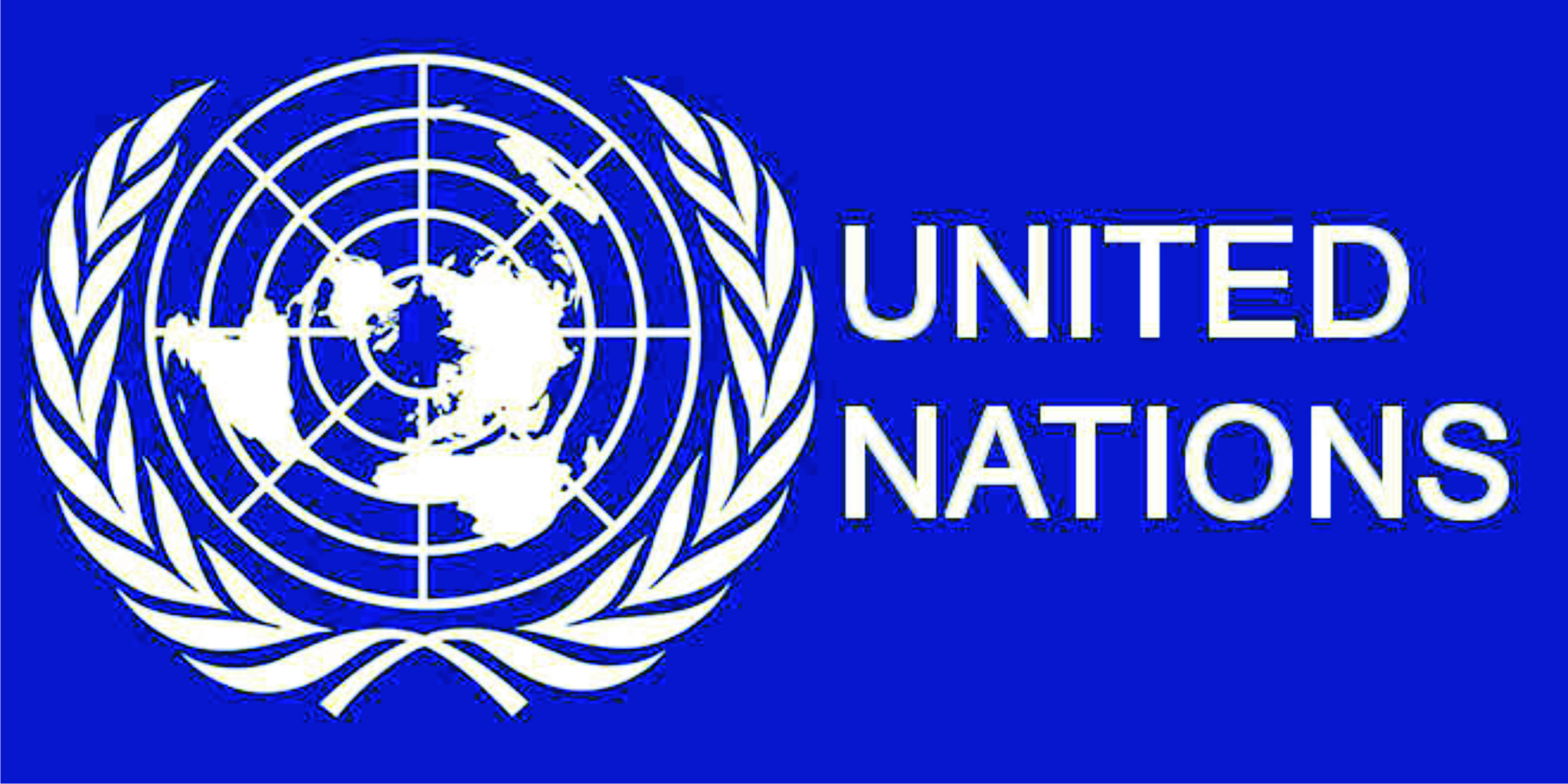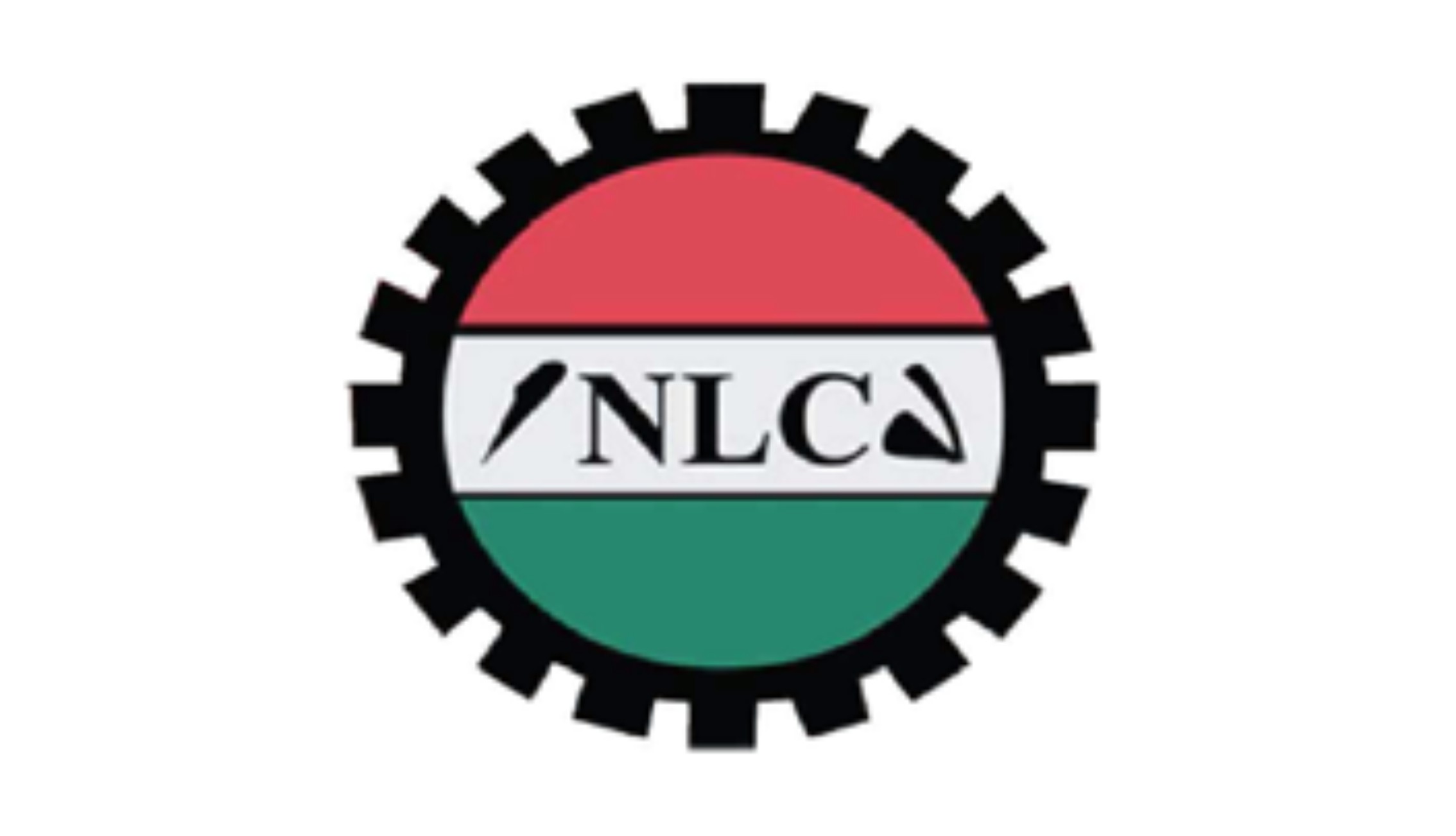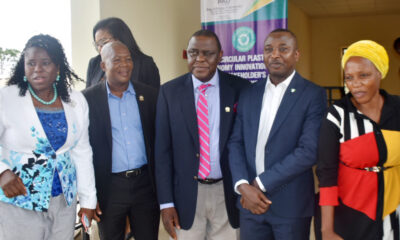Editorial
Education: Towards Learning For Lasting Peace

As Nigeria participates in the global commemoration of the International Day of Education today, it is necessary to reflect on the themes related to education in the country. The International Day, marked every 24th of January, was established six years ago, to highlight the importance of education in society with a shared commitment to promoting accessible and equitable high-quality education. Education Day was established through a United Nations General Assembly (UNGA) Resolution on December 3, 2018.
The theme of the 2024 celebrations: ‘Learning for Lasting Peace’ is apt and instructive. Already, United Nations Educational, Scientific and Cultural Organisation (UNESCO) has provided an explanation for this theme, underscoring the current surge in violent conflicts alongside a disturbing increase in discrimination, racism, xenophobia, and hate speech. The impact of this violence knows no boundaries, whether geographical, gender-related, racial, religious, or political.
Consequently, there is an urgent need for a resolute commitment to peace.
Education plays a role in this endeavour, as emphasised by the UNESCO Recommendation on Education for Peace, Human Rights, and Sustainable Development. The objective of learning for lasting peace is to be transformative, enabling learners to acquire the necessary knowledge, values, attitudes, skills, and behaviours to become agents of sustainable peace in their respective communities.
Recognising the utmost significance of education, the United Nations (UN) has embraced the integration of education into its ambitious Sustainable Development Goals (SDGs), spotlighting its essential role in eradicating poverty and inequality. A robust economy, an enlightened society, and a vibrant culture – all these fundamental aspects of contemporary society rely heavily on the bedrock of high-quality education.
The right to education is indeed a universal human right that should be guaranteed to every child. However, it is alarming to see that there are still 258 million children and youth who are not able to attend school, while 617 million children and adolescents struggle with basic reading and math skills. The fact that less than 40 per cent of girls in Sub-Saharan Africa complete lower secondary school, and that there are four million out-of-school children and youth refugees is deeply concerning. It is clear that their right to education is being violated, and this is absolutely unacceptable.
The Global Partnership for Education (GPE) invests funds raised from donor countries such as the US and UK in uplifting education opportunities for the vulnerable children and youths. It estimates to have granted more than $231million for education in Kenya alone since 2005, and more than $275million for Nigeria over the last decade. In total, GPE has spent more than $5.7billion of donor funding on education across sub-Saharan Africa. But despite such levels of government and international spending, education outcomes are at crisis levels in the continent.
In Nigeria, the attendance rate for children of primary school age stands at a concerning 61 per cent, with even lower figures observed in the northern regions. The situation becomes particularly dire for female children in the North, as only approximately 40 per cent of them are enrolled in schools. Despite the technical requirement of compulsory education in Nigeria, nearly half of the primary school-aged children do not have access to education. This issue persists and worsens as children progress to secondary and tertiary levels, as highlighted by United Nations International Children’s Emergency Fund (UNICEF) in 2022.
The primary aspect of concern pertains to the number of children who are out of school, yet this is only one facet of the problem. Another critical issue revolves around the caliber of education that is accessible, encompassing various aspects such as the state of infrastructure and learning environments, the applicability and versatility of the curriculum, and the competence of educators and the process of training teachers.
Attention and action at a political strategy level is needed to address many issues in the education sector. The government must prioritise and invest in education effectively, including resource allocation for the Ministry of Education. Concerns about the current curriculum across all school levels should be addressed, evaluating its relevance and its preparation of Nigerian graduates for international competition. Also, the curriculum should equip students with necessary skills to tackle future challenges. These questions require thoughtful consideration and prompt action.
Evaluation of the teacher training colleges and the entry criteria for student teachers is required. A reassessment of the minimum requirements for studying education at the university level is also necessary. It is vital to determine whether education courses serve as a refuge for students unable to pursue their desired fields or if they truly attract the most talented individuals. Although infrastructure is significant, addressing these aforementioned concerns should take precedence as a well-equipped computer laboratory or library would remain underutilised otherwise.
Standardisation of the education industry is worrisome. Schools are established hastily in residential property without proper regulations. Unlicensed teachers are frequently hired to instruct students, and each school has the autonomy to choose the curriculum they wish to follow. Although this approach may elevate educational standards in certain cases, it also leaves room for lower standards in others. Therefore, consistent policies and procedures must be established to ensure uniformity throughout the education system.
The enhancement of the health and safety of students, as well as the improvement of working conditions for teaching staff, is of utmost importance. Furthermore, it is crucial to protect the rights and well-being of the girl child in Nigeria. Given these considerations, it would be highly detrimental for Nigeria to ignore the impact that education has on the overall quality of life for its citizens. A society that prioritises literacy fosters understanding, international cooperation, and a value-driven commitment towards our nation’s collective objectives and state-of-being.
Editorial
May Day: Let Nigerian Workers Breathe

Nigerian workers observed this year’s May Day on the 1st of May in a somber tone, offering little cause
for celebration. The purpose of this day is to acknowledge the important role of workers in contributing to the growth and development of society. The occasion is celebrated with tremendous enthusiasm across the world. Ever since achieving independence, the labour movement in the country has persistently raised concerns regarding the country’s protracted battle for effective governance.
This year’s May Day theme, “Reclaiming the Civic Space in the Midst of Economic Hardship,” underscores a critical issue facing societies worldwide. In an era marked by rising living costs, stagnant wages, and growing unemployment, economic hardship has become a pervasive challenge impacting individuals, families, and entire communities. Against this backdrop, the theme serves as both a rallying cry and a call to action—urging workers to assert their rights, amplify their voices, and actively participate in civic life. It highlights the pressing need to protect and expand civic space even in the face of adversity.
A confluence of economic woes plagues Nigerian workers, which paints a bleak picture of their current realities. High unemployment casts a long shadow, while hyperinflation erodes purchasing power and deepens financial insecurity. This dire situation is further exacerbated by pervasive insecurity, widening income inequality, and the persistent issue of abysmally low wages that fail to meet basic needs. The hardships have only intensified following President Bola Tinubu’s policy decisions to remove petrol subsidies and allow the naira to float, further straining the already stretched resources of ordinary Nigerian workers.
The cost-of-living crisis in the country is a flinty reality for its workforce, exacerbated by the persistent issues of low wages and rising unemployment. While the official unemployment rate may appear to have drastically improved to 5.0 per cent after the National Bureau of Statistics’ rebasing in 2023, many view this figure with skepticism, remembering the previous rate of 33.3 per cent. The reality for many Nigerians is far more challenging, particularly for young people, who face an unemployment rate of 18 per cent.
Nigerian workers are facing a severe economic crisis that is impacting every aspect of their lives. Rampant inflation, eroding purchasing power, with food inflation hitting a staggering level. This dramatic surge in prices is outpacing wage growth, leaving many struggling to afford basic necessities. The volatile exchange rate, with the naira fluctuating wildly against the dollar, adds another layer of instability.
The nation’s economy faces a precarious situation, teetering on the brink of crisis. With a staggering 98 per cent of Federal Government revenue dedicated to debt servicing, very little remains for essential public services and infrastructure development. This dire fiscal constraint is compounded by the country’s high crude oil production costs, severely limiting profitability and undermining the oil sector’s potential contribution to national revenue.
Simultaneously, the economy is suffering from a sharp decline in Foreign Direct Investment (FDI), signalling a loss of investor confidence and further exacerbating the economic downturn. The exorbitant cost of governance acts as another significant drain on public finances, diverting resources away from crucial areas like healthcare, education, and infrastructure. Additionally, many state governments are unable to implement the current 70,000 minimum wage. Their usual excuse is that the resources are not there. Several of them owe salaries and pensions.
Workers are notably disadvantaged in terms of their understanding and ability to avail themselves of middle-class securities and privileges. It is observed that basic amenities such as family vacations, social security, health insurance, and mortgage loans, which are common in other parts of the world, are considered to be a luxury in our country. As a result, workers are at risk of being poor, and this implies that they are only a paycheque away from falling into abject poverty.
While public sector job opportunities are finite, a favourable environment can enable the private sector to generate additional employment. The Nigeria Labour Congress and Trade Union Congress should unite to advocate for a transparent, vibrant private-led economy that creates jobs and prosperity for all workers. Governments at all levels should enhance workers’ welfare by operating efficient administrations based on contemporary business principles. State governors must make timely payment of salaries and pensions their priority.
A suitable work environment, and the provision of a living wage, should be given utmost priority by all tiers of government. The growing number of strikes across Nigeria underscores the urgent need for the authorities to tackle the problem. It is distressing that the national minimum wage in our country is below the estimated monthly maintenance cost of a typical pet dog in the United Kingdom.
This year’s May Day presents an opportunity for both federal and state governments to tackle the increasing unemployment rates across the nation by formulating effective strategies aimed at generating additional job opportunities. The authorities can expedite their commitment to assist millions of Nigerians in breaking free from poverty by creating additional job opportunities within the agriculture sector, which possesses the capacity to employ a large number of individuals.
To strengthen its economic stability, the Nigerian government should actively seek to decrease its dependence on crude oil. Nigeria has the opportunity to build a stronger financial future by directing resources towards diversifying its economy, especially through investments in the agricultural sector and solid mineral industries. Implementing this well-thought-out strategy has the potential to strengthen economic stability and foster sustainable practices across different industries. Moreover, they are required to deal with the rising levels of insecurity that result from clashes between herders and farmers, in addition to the problems associated with banditry and insurgency.
Editorial
Reforming Nigeria’s Prison Crises
The news of the Koton Karfe prison break in Kogi State, were met with a degree of resignation, underscores a
deeply troubling and recurrent crisis within Nigeria’s correctional system. The escape of 12 inmates, despite the swift recapture of a few, serves as a reminder of the vulnerabilities plaguing these facilities. This incident is not an isolated event, but rather the latest chapter in a well-documented history of prison breaches across the country.
From the Ikoyi riot in 2004 to the more recent, and devastating, escapes linked to the #EndSARS protests, the pattern is clear: Nigerian prisons are struggling to maintain security and prevent inmates from absconding. The chilling detail of an escaped inmate immediately murdering a witness further highlights the grave consequences and potential societal impact of these failures. The sheer scale of the problem, with over 5,238 inmates escaping during 15 jailbreaks in just two years, demands urgent and comprehensive attention.
Nigeria’s correctional system is in dire need of comprehensive and urgent reform, as evidenced by a confluence of deeply troubling issues. Senate President Godswill Akpabio’s observation regarding the increased frequency of jailbreaks since the transition from Nigeria Prisons Service to Nigeria Correctional Service highlights a systemic failure in maintaining secure facilities and rehabilitative programmes.
Furthermore, public trust is eroded by credibility crises, such as the alleged premature release of crossdresser Bobrisky in 2024, suggesting potential corruption or preferential treatment within the system. Adding to this already alarming situation is the overwhelming number of awaiting-trial inmates. Of the approximately 79,863 individuals currently incarcerated, a staggering 70 per cent (53,254) are yet to be convicted, pointing to severe inefficiencies and delays within the judicial process.
Perhaps, most damning is the revelation that children constitute a reported 30 per cent of the correctional population, a statistic that shames the nation and underscores the urgent need for age-appropriate justice and rehabilitation mechanisms, moving away from simply warehousing vulnerable youth within an overburdened and ineffective system.
The penal system, fundamentally toxic at its core, suffers from a crippling combination of systemic neglect and inherent flaws. Severely underfunded and perpetually overcrowded, prisons are often characterised by crumbling infrastructure, inadequate healthcare access, and absence of meaningful rehabilitation programmes. This confluence of detrimental factors cultivates an inhumane environment that actively undermines any potential for reform, instead fostering resentment and potentially hardening inmates into more serious criminals.
The strain on resources is painfully evident even in the most basic provisions, clearly illustrated by the inadequacy of feeding allowances. While the Federal Government’s recent increase of the daily allowance from N750 to N1,125 per inmate represents a step forward, it remains grossly insufficient to provide proper nutrition, showing the pervasive and deeply ingrained nature of the problem.
The justice system is plagued by systemic inefficiencies and ethical breaches, which creates a breeding ground for injustice and exacerbating societal problems. Unacceptable delays bog down the courts, compounded by archaic manual record-keeping systems that lead to lost files and impede the swift administration of justice. The integrity of evidence is further compromised by the alleged admission of forced confessions without proper verification, raising serious concerns about due process.
This flawed system allows for the regular arrest and detention of innocent individuals, who then suffer the indignity of prolonged incarceration. Compounding these issues are credible reports of dehumanising treatment of detainees, and allegations of collusion between security agents and magistrates to unlawfully prolong custody. These failures erode public trust and create a dangerous cycle, plausibly contributing to the rise in violent crime as prison escapees, potentially radicalised or hardened by their experiences, may resort to armed robbery, banditry, terrorism, and kidnapping.
The justice system’s deep-seated flaws cultivate a breeding ground for further crime and erode public safety. Crippled by systemic delays, reliance on antiquated manual processes, and the alarming acceptance of potentially coerced confessions, the system frequently fails to deliver justice and protect the innocent. The routine arrest of innocent individuals, followed by prolonged and unjust detention, points to a broken process ripe for exploitation. Dehumanising treatment within detention facilities, coupled with alleged collusion between security agents and magistrates to circumvent due process, fosters a climate of mistrust and fuels resentment.
This dysfunction extends beyond individual injustices, potentially contributing to broader societal problems. The escape of prisoners, some of whom may then engage in violent crimes demonstrates the tangible threat these failures pose to public safety. The tragic events at St. Francis Catholic Church in Owo, allegedly perpetrated by escaped ISWAP members, serve as an illustration of the devastating consequences stemming from a broken and permeable justice system.
The Nigerian prison system faces a multitude of challenges, but glimmers of hope shine through. The graduation of 1,229 inmates from the National Open University of Nigeria serves as powerful evidence of rehabilitation’s potential when individuals are afforded proper educational opportunities. To further bolster this potential and address systemic issues, a shift towards true federalism with devolved prison management is necessary.
If states and local government areas establish their own custodial centres, a decentralised system can be created where suspects are housed closer to their respective jurisdictions, potentially easing overcrowding at the federal level. Simultaneously, the Federal Government must deliver on its promise to construct new custodial centres and relocate existing ones from densely populated areas. This infrastructural improvement, coupled with a rigorous vetting process to prevent wrongful incarceration, will significantly reduce the burden on the system.
Nigeria should look beyond its borders, studying and adopting best practices in prison modernisation from countries with successful rehabilitation-focused correctional systems. By prioritising rehabilitation over mere punishment, and implementing strategic reforms, Nigeria can transform its correctional system into one that fosters positive change and contributes to a safer society.
Editorial
Easter: A Call For National Renewal

Yesterday was Easter Sunday, a day when Christians around the world celebrate their belief that Jesus Christ rose from the dead after being crucified and buried. The day is a moment for deep reflection and spiritual renewal. The Lenten season before Easter promotes self-examination, fasting, and prayers to help believers grow closer to God. This time of reflection leads to the joyful celebration of resurrection. The Risen Christ represents hope and the promise of life after death, highlighting themes of love, sacrifice, forgiveness, and reconciliation.
For those who truly understand Easter as celebrating life’s victory over death, the resurrection of Jesus of Nazareth—unjustly executed by Roman authorities—represents justice overcoming injustice, love conquering hatred, and divine compassion transcending human malice. This Easter message challenges humanity broadly and Nigerians specifically. Amid politics often devoid of morality, Easter calls us to prioritise the power of love over the love of power.
This year, Nigerians marked Easter amid a climate of insecurity, with citizens facing abduction for ransom on streets and from homes, and murder on farms and in places of worship. For many years, Nigeria has been entombed in darkness of injustice, sealed with the heavy stone of oppression. This oppression weighs down millions of citizens, preventing them from realising their God-given potential. Our national history reflects disturbing uncertainty and unnecessary, avoidable hardship for many.
Many individuals who pursue or currently occupy positions of public office have unfortunately succumbed to a distinctive form of blindness that accompanies power—a perceptual impairment that renders them unable to recognise a fundamental truth: that no nation built upon the foundation of injustice can truly endure or thrive in the long term. This deliberate refusal to see reality clearly has, over generations, enabled and perpetuated destructive cycles of inadequate governance, institutional failure, and widespread suffering among the very populations these officials have sworn to serve.
Beyond Easter’s religious festivities, we must confront the reality that our population has often fallen prey to dubious religiosity, fake patriotism, and criminally deceitful politics. Nigeria stands as a land immensely blessed by the Creator yet mindlessly damaged by negative attitudes of both leaders and citizens. Despite abundant natural endowments, our country remains populated by impoverished people.
An alarming number of young Nigerians are succumbing to despair. They see no future in their homeland and actively seek opportunities to leave a country that offers little hope to its children. Yet, Nigeria can and should rise from this tomb of hopelessness—Easter’s celebration symbolises precisely this restoration of hope in seemingly impossible circumstances.
Our collective hope must be rekindled and nurtured back to full strength. All Nigerians—from those in the highest positions of leadership to everyday citizens in communities across the nation—need to work diligently and conscientiously toward rebuilding and restoring genuine hope for the younger generation who represent our future. This essential task requires tangible, meaningful actions that clearly demonstrate a sincere commitment to positive, sustainable change rather than continuing the pattern of empty rhetoric and unfulfilled promises that has too often characterised past efforts.
If we genuinely wish to celebrate Jesus’ resurrection and apply its meaning to our national situation, we must resolve to operate differently. We must commit to building a nation where oppression has no place, where elections proceed without acrimony or ethnic profiling, where voter intimidation and vote buying are eliminated, and where results reflect the true will of the people.
Easter encapsulates the profound message of new beginnings and spiritual renewal, challenging us to apply these transformative principles to the rebirth of Nigeria by wholeheartedly embracing and actualising our lofty ideals. Indeed, the generations yet unborn, who will inherit the Nigeria we shape today through our actions and commitments, deserve nothing less than a thoroughly transformed country that lives up to its full potential as the giant of Africa.
For this new Nigeria to emerge, each citizen must commit to living with a completely renewed attitude. We must embrace transformation at both personal and collective levels. The journey toward national renewal begins with individual change—in our homes, workplaces, and communities. Easter should be understood not merely as a celebration but as a sacred obligation to our nation and one another. It represents a profound opportunity for rebirth and restoration. Just as the Easter story speaks of sacrifice leading to new life, our nation requires our collective sacrifice and dedication to experience true renewal.
This season imposes upon us the responsibility to rise from the dark tomb into which greed and selfishness have pushed us, embracing a new life dedicated to truth, goodness, and love. If Nigerians continue with business as usual—maintaining corrupt practices and self-serving attitudes—there would be no legitimate cause for celebration. Indeed, the true meaning of Easter for Nigeria lies not in festivities alone but in our collective determination to resurrect our nation from its current challenges toward a brighter, more hopeful future.
-
Women3 days ago
Justice Prevails Over Osinachi’s Death
-

 Featured3 days ago
Featured3 days agoLabour Unions In Rivers Call For Improved Standard Living For Workers
-
Politics3 days ago
Enugu LP Loses Pub Sec To PDP
-
Niger Delta3 days ago
Diri Recommits To Support For Security Agencies …Cautions AIG, Sacks Youth Exco
-

 Nation3 days ago
Nation3 days agoOgun, Nike Art Gallery Set To Transform Olumo Rock
-
Social/Kiddies3 days ago
Need For Girl-Child Education In Society
-

 News3 days ago
News3 days agoNBA President Sues For Workers’ Protection, Better Wage
-
Politics3 days ago
Gunmen Disrupt Political Rally In Bayelsa ….As Turnah, Others Emerge New Associates’Leaders

